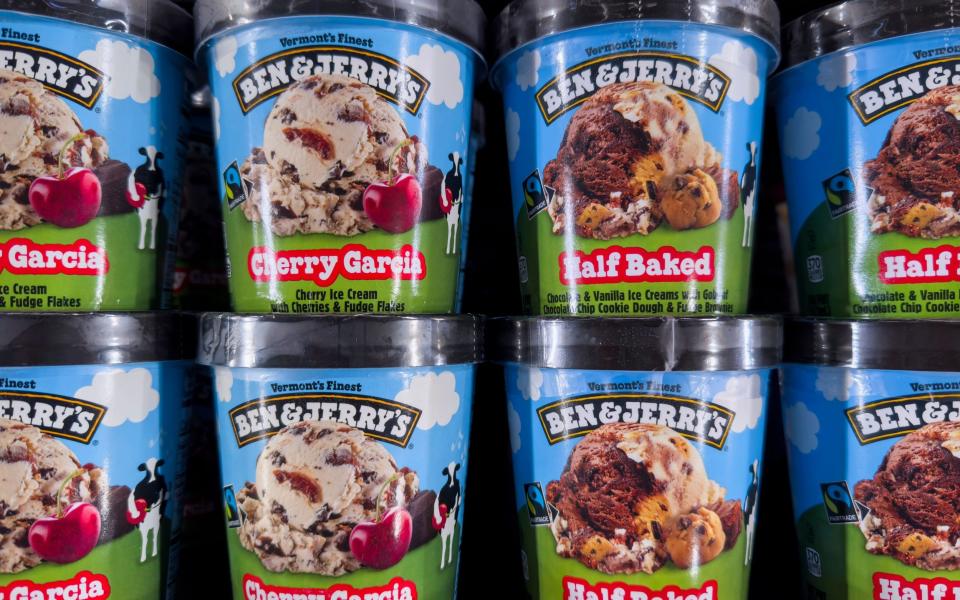Unilever forced to retain a multibillion-pound slice of its ice cream empire

Unilever could be forced to hold onto a multi-billion pound slice of its ice cream empire, according to senior City sources, as the sheer size of the operations make it difficult to find a buyer.
The consumer goods giant is attempting to offload brands including Magnum, Wall’s and Ben & Jerry’s as part of an elaborate corporate clean-up exercise.
Valued at as much as £15bn, bankers say the ice cream operations are so large that a full takeover would be beyond even the deep-pocketed private equity firms and Middle Eastern state-backed funds that are circling the business.
The only way to make a deal affordable is if Unilever brings down the price tag by retaining a significant minority stake, it is believed. Even then, it is expected that buyers will have to team up in bidding consortiums in order to assemble the required firepower.
Retaining a minority stake would reduce the risk of Unilever being accused of selling the division on the cheap – a charge it has faced in the past when the company has sold parts of its sprawling portfolio of household labels.
“Think of it as an anti-embarrassment clause,” one City source said.
Unilever sold its spreads division, which included the Flora and Stork margarine brands, to buyout firm KKR in 2017 in the wake of a hostile takeover approach from Kraft Heinz and Warren Buffett. KKR paid £6bn but some analysts think Unilever could have got more.
Four years later, CVC paid nearly £4bn for its PG Tips tea division.
It is understood some of the world’s biggest private equity funds, including CVC, KKR, and Blackstone, are running the rule over Unilever’s ice cream division. Sovereign wealth funds from the Middle East are also understood to be interested.
Unilever raised the for sale sign in March, alongside 7,500 possible job losses.
The FTSE 100 consumer goods giant is also exploring a spin-off that would see the ice cream business floated as a separate entity on the stock market.
City figures hope that the board would choose a London listing in this scenario. A share sale in the capital of such a large business would be a huge boost as the stock market battles to stem an exodus of public companies – largely to America.
Shell stunned the Square Mile earlier this month when it raised the prospect that it could become the latest UK company to up sticks and move to New York. Chief executive Wael Sawan said that the £180bn oil explorer was looking at “all options” for its listing.
Referencing the London market, he said: “I have a location that clearly seems to be undervalued.”
There are doubts, however, about whether Unilever would choose London over Amsterdam, given the controversy over its attempts to leave the UK and consolidate its dual Anglo-Dutch corporate structure in the Netherlands during the Brexit vote.
Following a fierce backlash from British shareholders, Unilever was forced into an embarrassing about turn that ended with the company unifying in the UK instead.
At the time, the Dutch government asked for reassurance that Unilever would incorporate and list its foods and refreshment division in The Netherlands should it ever choose to list the businesses as an independent company. Unilever said it was “comfortable to make these commitments.”
In 2022, the division was split into two parts, nutrition and ice cream.
Unilever declined to comment.

 Yahoo Finance
Yahoo Finance 